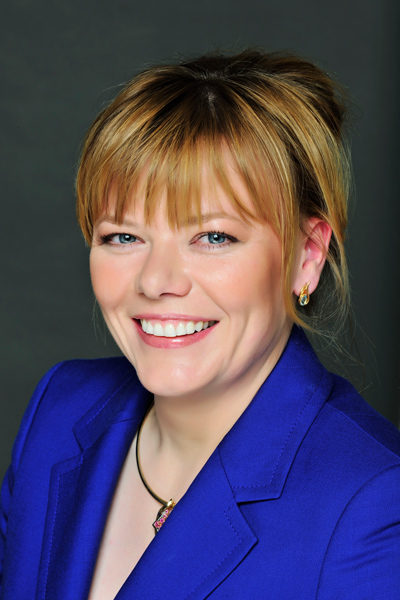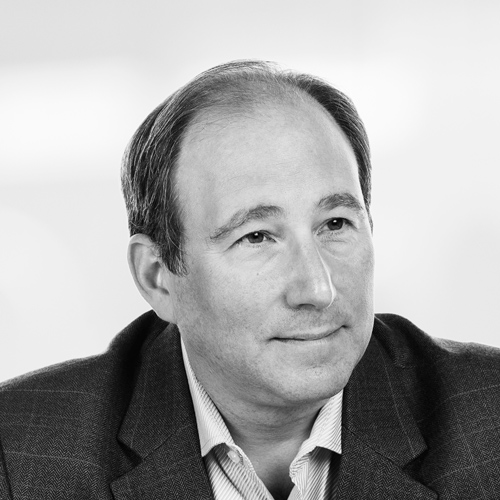
No matter how far up Bridie Fanning climbs the corporate ladder or which companies she works with, her approach to building human resources functions will always remain the same: to ensure that employees have a great place to work to maximize their performance for customers, which in turn generates value for investors.
Today, Fanning serves as a senior advisor with Boston Consulting Group, in the People & Organization Practice, a position she’s held for the past eight years. In this role, Fanning works alongside chief executive officers and chief human resources officers in different businesses and industries globally to assess their company’s overall human resources function, its effectiveness, efficiency, and how it impacts the business.
In assessing the HR function, Fanning reviews how the people practices align with the business strategy and identifies the outcomes the department is experiencing both in terms of the value generated by talent processes and the cost of providing those outcomes.
“I’m looking at the people in HR, processes, practices, policies, and technology—from recruitment to leadership development to performance management—and how these are interacting together and what outcomes result,” Fanning says. “Then, I make recommendations on what can be done differently to achieve greater productivity and better business and culture outcomes.”
Fanning not only takes a holistic and strategic approach to the HR assessment, but she also looks at the nuts and bolts of how the HR operation is running. She takes a personal approach in assessing human resources capabilities by interviewing senior executives both within and outside of HR to understand what they consider is important to them.
Fanning’s experience in both CHRO roles and consulting have proved invaluable to combining the strategic needs at the executive level with the operational demands of an in-house CHRO. That was the case when she established a stand-alone HR function at Vyaire Medical—carved out of its parent company, Becton Dickinson—which enabled the organization to operate independently.
Fanning has had a successful thirty-year career in the human resources arena, much of which she attributes to the mentoring she received early in her professional life. In particular, she praises John Lynch, General Electric’s chief human resources officer, who hired Fanning at GE UK in 1995. He continually offered her guidance and support even during stretches when she wasn’t working directly for him.
“I’ve benefited from a handful of individuals throughout my career that have taken an interest in my success, and I’ve been very grateful for that support,” Fanning says. “I would not be who I am today without their coaching, guidance, and care.”
Fanning will never forget how mentorship helped boost her career, and she is always striving to pay it forward. She has coached peers who find themselves in difficult situations because the breadth of her experience in consulting and CHRO roles give her a unique perspective.
For example, Fanning had a CHRO reach out to her with a career dilemma. The CHRO’s company had been acquired, and suddenly this woman was looking for a new job for the first time in a long time. An opportunity arose with a Fortune 100 company, but the culture of the company was so far removed from what the human resources professional had been used to that she was hesitant to take the job.
“I said, ‘If you’re looking for that culture again, you are going to enjoy your retirement,’” Fanning says. “She said, ‘What do you mean?’ I said, ‘Well, you’re not going to work again. The culture you experienced in your former company was a one-off, and at the top, you can work to help shape the culture.’ And she ended up taking the job.”
In addition to providing career advice, Fanning’s mentorship includes helping people understand the unwritten and unspoken rules of the game. One of those rules Fanning tells people is as a CHRO they need to focus on building relationships and branding themselves because, at this level, Fanning says that it’s not just about capability
and performance.
“People don’t like hearing that,” she says. “But the higher up you go and the larger the company is, the more your performance is dependent on your ability to be seen to be doing the right things, connecting and building trust in the leadership team, and creating the environment for others to thrive.”
Although Fanning believes it is critical for all human resources executives looking to move up to make meaningful connections, it’s even more important for women to do so.
Fanning is an authority on helping women succeed in the HR world because she spent her career trying to figure out her way around a male-dominated corporate environment. As someone who twice became the youngest CHRO at a Fortune 500 company and often the only woman on the executive team, it was sometimes challenging for her to find a way to connect with the men at the top.
“Certain norms about how men work are not understood by women,” Fanning says. “Men have many things in common, whether it is sports, grabbing a beer, golf, or other such factors. It leads to men being more comfortable with other men and less so with women. Women are not as welcome in this domain. It is an unconscious bias. Women are judged differently, and men choose to spend time with those they are more comfortable with—other men. This is especially true at the top.”
The advice she received about how to build these connections and encourage men to truly trust her boiled down to finding common ground socially and spending more time with them to connect on a personal level.
Any challenges Fanning may have encountered along the way of her career journey have been worth it because she’s doing something she loves: helping people. Perhaps what she enjoys most about human resources is it’s a discipline that, as she puts it, accentuates a sense of purpose.
For Fanning, the industry doesn’t matter as much as the environment created for employees. So, whether she’s at a healthcare services company such as Surgical Care Affiliates that is patient focused or at a financial services company that is fiscally driven, Fanning’s goal does not change: to create an environment where people are engaged and motivated to give their best every day for those they serve.
“Work is a big part of people’s lives and the communities and societies in which they live and work,” Fanning says. “If you can give people rewarding, satisfying work lives that are motivating and engaging, then that has a filtering effect into the wider community. My purpose has always been to create an environment for employees to be treated fairly, consistently, and to be excited about the mission of the companies they work for.”

